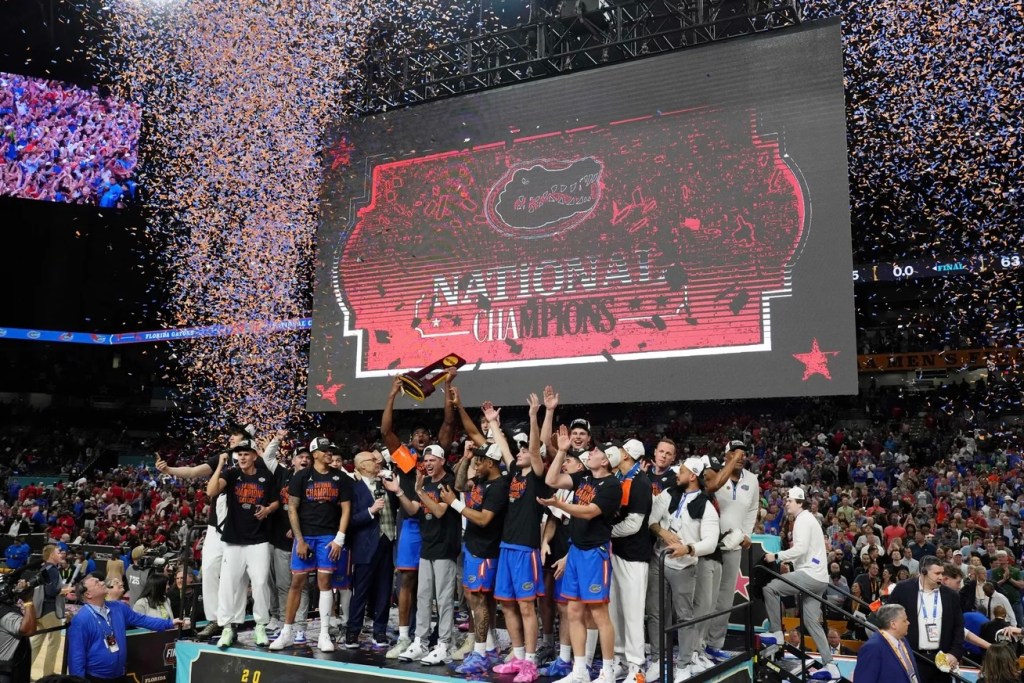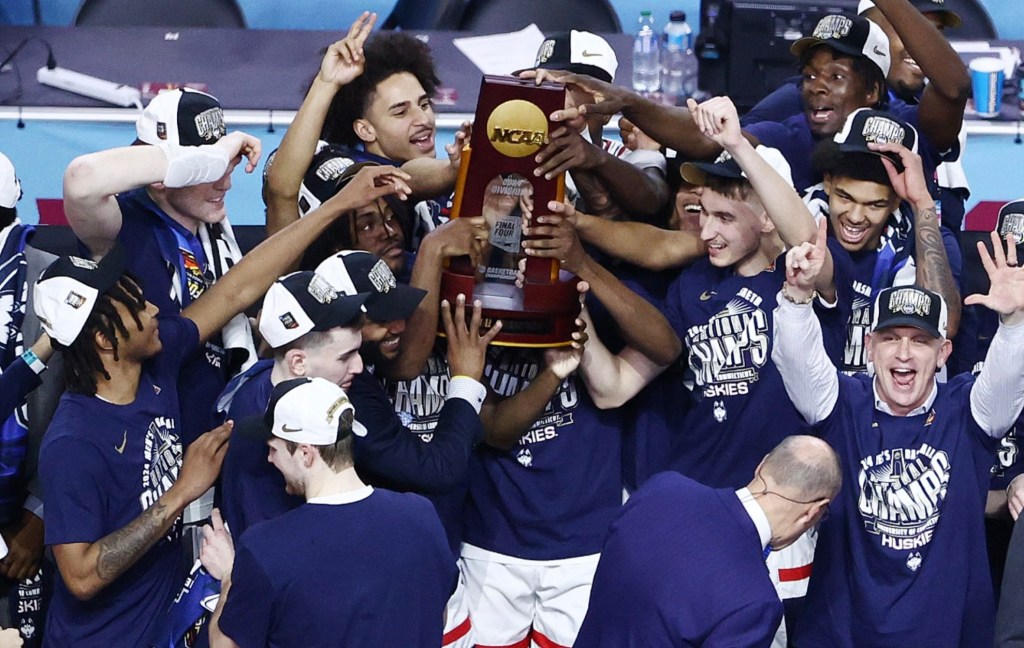
Congratulations, Florida, on a third men’s national title. Your six-game run to the championship not only included multiple stirring comebacks from second-half deficits, it also lifted you into the top 10 for tournament wins since the field expanded to 64 teams in 1985.
Well done, Gators. Tough luck, former top-10 member Michigan.
Expanding the field 40 years ago did away with byes, giving us a trusty measuring stick when teams accumulate tournament victories over the years. Yes, the NCAA muddied that up a bit by expanding past 64 teams starting in 2001, but we can adjust with a well-placed asterisk here and there.
Top 25 for NCAA men’s tournament wins, 1985-2025
Wins
1. Duke 109
2. North Carolina 99* 2025
3. Kansas 94
4. Kentucky 86
5. UConn 68
6. Michigan State 66
7. Arizona 60
8. Syracuse 57* 2018
9. UCLA 56* 2021
10. Florida 54 (Congrats!)
11. Michigan 53* 2016
12. Louisville 49
13. Villanova 47
Gonzaga 47
15. Purdue 42
16. Arkansas 40
17. Maryland 37
Oklahoma 37
Wisconsin 37
Indiana 37* 2022
21. Ohio State 35
22. Illinois 34
Texas 34
24. Georgetown 33
25. Xavier 31* 2025
* Round of 68 victoryIn other news I think we can all agree that the big story coming out of the 2025 bracket is Kansas and its shocking performance against seed expectation in years when it does not win it all.
First, some background….
Continue reading








